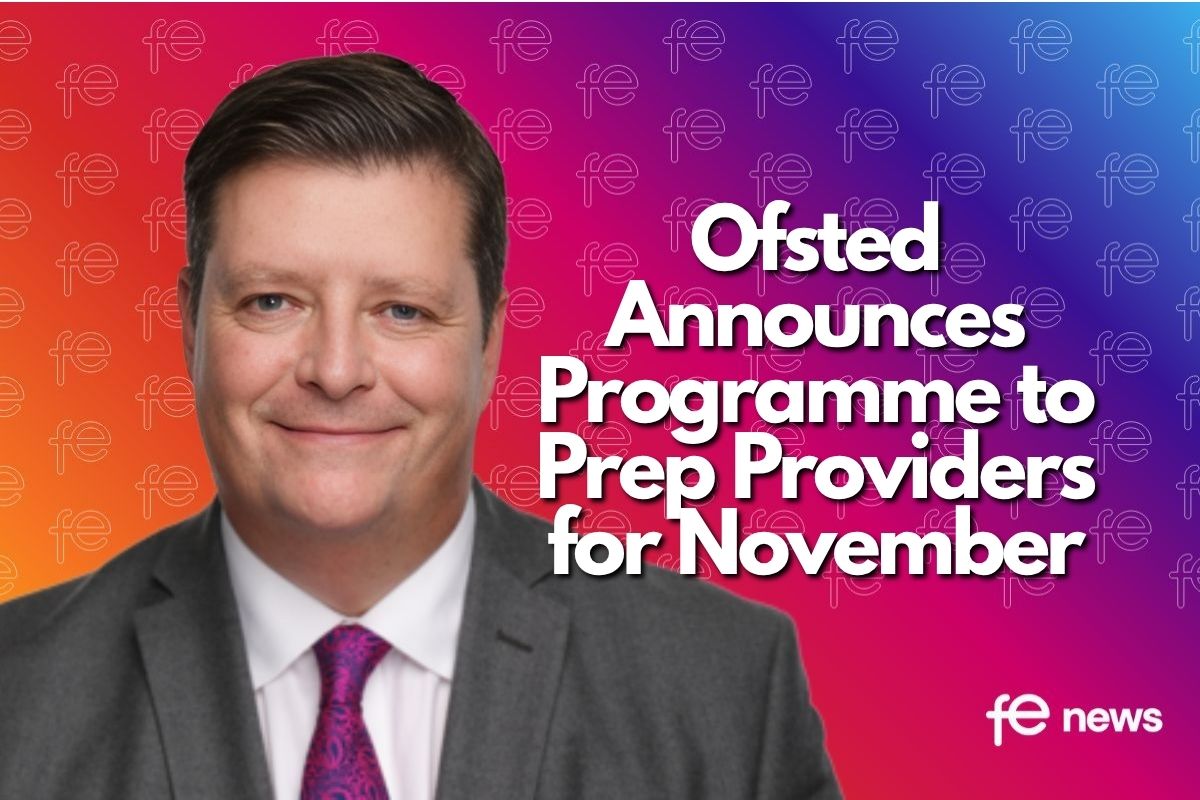Placing Vocational Education at the Heart of Levelling Up

The long-awaited publication of the Government’s Levelling Up White Paper should have marked an important step in transforming opportunities for left behind areas. The promise of placing skills, schools and families at the heart of reform is well overdue, but actions speak louder than rhetoric. Now is the time for tangible change.
Already, much has been said about the role of Higher Education (HE) in ‘Levelling up’. Universities, for example, have been mooted as key for driving up standards in schools and colleges. The Government has also announced its intention to target investment and support at so-called ‘Education Investment Areas’, helping those from the most deprived backgrounds and areas access high-quality education. But beyond the promise of new, elite, sixth form free schools, little has been said about existing Further Education (FE) provision.
FE colleges are more than mere education providers – they are anchor institutions within local communities. We, therefore, need to see the same level of ambition for FE as for other areas. There is public support for this. A recent survey by The Education and Training Foundation and YouGov found that 40% of adults identified FE as one of their top three priorities for levelling up (Centre for Progressive Policy, Skill up to level up: Reducing place- based skills inequality to tackle rising unemployment, April 2021). So what policies can ensure that Levelling Up places FE colleges at the front and centre of the agenda?
Responsibility for FE
First and foremost, we need clarity on exactly who is responsible for Levelling Up FE in local regions. This requires a place-based approach rather than top-down decrees from Whitehall. At present, however, the strategy is unclear. Will responsibility fall to Local Enterprise Partnerships, colleges, HE institutions or employers? Or perhaps to the newly mooted Local Skills Improvement Plans (LSIPs) and Chambers of Commerce in the Department for Education’s 2021 ‘Skills for Jobs’ White Paper? Strangely, we saw little mention of Local Enterprise Partnerships in the paper, and the devolution proposals remain unclear. This omission must be corrected to give local leaders the tools to fully contribute to skills development in their region.
Adult Training and Retraining at Level 2 and below
Currently, there is much energy focused on Level 3 qualifications reform. But as The Edge Foundation has said before, while attention at this level is necessary, it should not come at the expense of a focus on Level 2 and basic skills. At present, though, these areas receive comparatively little focus. FE plays a vital role in supporting adults working towards basic skills and those who desire to upskill or reskill. In particular, this includes those from disadvantaged communities and at the lower end of the skills ladder.
The cost of low skills levels (i.e. those without formal qualifications) is more concentrated in deprived local authorities. However, research also shows a positive correlation between increased basic skills and employment uplift. In other words, the lower the share of people without a formal qualification, the higher the employment rate. Levelling up basic skills could boost employment by up to 302,000 in the most deprived areas (e.g. Birmingham, Bradford, Liverpool). Extending opportunities to greater proportions of people would also ensure they can progress in their personal lives and future employment.
Access to Apprenticeships
Access to high-quality apprenticeships is vital for delivering first-rate vocational and technical education, meeting the needs of employers and the skills needs of the economy.
Degree Apprenticeships particularly have an important role to play in boosting social mobility and supplying the economy with critical skills. Current data, however, suggests the emergence of degree apprenticeship ‘cold spots’ in areas of severe educational and economic disadvantage. An apprentice in Norfolk, for instance, may have to travel 12 times as far to access the nearest opportunity as one in Hammersmith and Fulham. Tackling this requires greater collaboration between employers, training providers and apprentices to clarify roles and responsibilities and expand the degree apprenticeship programme.
There are models we can learn from, including Scotland’s Graduate Apprenticeship programme, which Edge has recently investigated for the Scottish Apprenticeship Advisory Board. Their industry-led development model unites employers, apprentices, trade unions and industry representatives to understand current and future work needs. This ensures that Graduate Apprenticeships are aligned to the realities of work and are supported by strong standards and clear objectives.
Funding Technical Education and Apprenticeships
There are some grains of hope for the education sector in the Levelling Up White Paper. However, more work is needed to promote and uplift the benefits of technical education and apprenticeships. Crucially, ‘Levelling Up’ must become more than simple government rhetoric – we now need urgent funding for FE to match this ambition and deliver tangible, measurable change.
Recommendation 1
Whitehall must clarify exactly who is responsible for Levelling Up further education in the local regions of England.
Recommendation 2
DfE must not discount the importance of adult training and retraining at Level 2 and below in general and levelling up in particular.
Recommendation 3
At the Spring Statement in March 2022 or the Autumn Budget later in the year, the government must release urgent funding for post-16 further education so that both national and local objectives can be achieved.
Olly Newton, Executive Director, The Edge Foundation
Post-16 Education and Skills: Levelling Up Everyone, Everywhere
Campaign for Learning’s paper Post-16 Education and Skills: Levelling Up Everyone, Everywhere, is a collection of 18 articles and recommendations by leading stakeholders and thinkers across the post-16 education and skills sector.
The paper covers six key considerations for the Levelling Up agenda – national and place based strategies, young people, lifelong training, lifelong learning and post-16 providers.
As the articles show, from the perspective of post-16 education and skills policy, levelling up is about people as well as places – the policy canvas is vast, the perspectives diverse and the insights important.
Together, our authors demonstrate the need for strong, nationally based as well as place based strategies if everyone, everywhere aged 16 and over are to level up through education and skills’
Part 1: Levelling Up and National and Place
- Andy Westwood, Professor of Government Practice, University of Manchester - Levelling Up and the Department for Education
- Sam Freedman, Research Fellow, Institute for Government – Levelling Up and Post-16 Education and Skills
- Fiona Aldridge, Head of Skills Insight, West Midlands Combined Authority – Levelling Up the West Midlands by 2030
- Mark Hilton, Policy Director, London First – Levelling Up London by 2030
Part 2: Levelling Up and Young People
- Geoff Barton, General Secretary, ASCL - Levelling Up and Education: Lots of Stuff but Little Substance
- Sam Tuckett, Senior Researcher, Education Policy Institute – Levelling Up 16-19 Education
- Becci Newton, Director of Public Policy and Research, IES – Levelling Up Participation by 16-18 Year Olds
- Kathleen Henehan, Senior Policy and Research Analyst, Resolution Foundation – Levelling Up 18-24 Year Olds in England
Part 3: Levelling Up and Lifelong Training
- Olly Newton, Executive Director, The Edge Foundation - Placing Vocational Education at the Heart of Levelling Up
- Mandy Crawford-Lee, Chief Executive, UVAC – Higher Technical Education, Higher & Degree Apprenticeships and Levelling Up
- Ewart Keep, Emeritus Professor, University of Oxford – The Role of Employer Training in Levelling Up
Part 4: Levelling Up and Lifelong Learning
- Stephen Evans, Chief Executive, L&W – Levelling Up in England through Lifelong Learning
- Susan Pember, Policy Director, HOLEX – Levelling Up as a Nation of Lifelong Learning
- Simon Parkinson, Chief Executive, WEA – The Future of Adult Learning is in the Hands of Local Leaders
Part 5: Levelling Up and Post-16 Providers
- David Hughes, Chief Executive, Association of Colleges – Well-Funded Colleges to Serve Every Community
- Nick Hillman, Director, HEPI – A ‘Higher Education Institute’ in Every Community
- Chris Hale, Director of Policy, Universities UK – Levelling Up and Widening Participation into Higher Education
- Jane Hickie, Chief Executive, AELP – Levelling Up is as much about People as Places











Responses